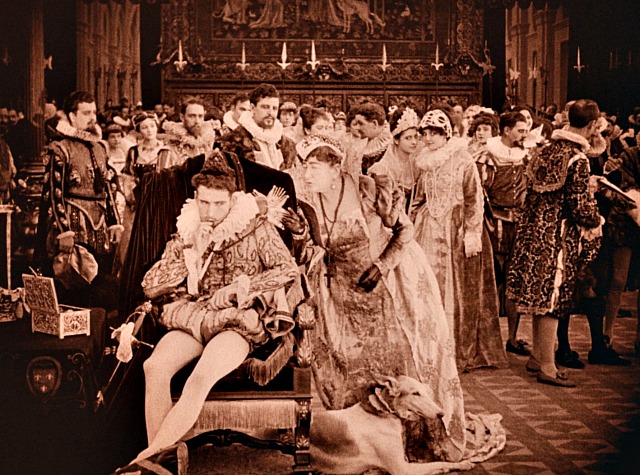See The Grandeur Of Silent Epic 'Intolerance' This Saturday
By Joel Wicklund in Arts & Entertainment on Mar 3, 2015 4:00PM

Scene from "Intolerance."
D.W. Griffith's landmark film Intolerance was advertised as a "colossal spectacle" during its original 1916 release, and there isn't an ounce of hyperbole in that statement. By any era's standards, Intolerance is simply gigantic in both narrative scope and as a physical production. If you've never seen this historic epic, this Saturday night South Side Projections presents a rarely screened version of the film at the University of Chicago's Logan Center for the Arts (915 E. 60th St.).
This version is a 35mm reconstruction created by New York's Museum of Modern Art that last showed in Chicago over 22 years ago. Using as much existing footage as possible, MoMA's reconstruction also uses still photos to convey scenes that were lost after the movie's initial premiere, as Griffith continuously edited and re-edited the picture in an attempt to make it more commercially successful.
The use of stills to recreate scenes from lost films is somewhat controversial, as it changes the visual aesthetic of the film as a whole. The technique has been used in movies as varied as 1954's A Star Is Born (where dialog soundtracks existed to accompany the stills) and 1927's London After Midnight, where all footage is believed lost and only a version made up entirely of stills exists to suggest what the movie may have been like.
Considering the slim chance that a complete premiere version of Intolerance will ever be found, the MoMA reconstruction may be the best way to get a feel for its original narrative grandeur. In addition, all surviving versions of the movie are lengthy (ranging from just shy of 3 to 3-1/2 hours), so any revival booking is a fairly rare opportunity to see this important work on the big screen. The musical accompaniment for this showing, by acclaimed opera composer and conductor Somtow Sucharitkul, also promises to be something special.
As a follow-up to Griffith's groundbreaking, though undeniably racist The Birth of a Nation (1915), Intolerance was at least partly a response by the director to show he was not guilty of the weakness that gives the film its title (even in its day, The Birth of a Nation was very widely criticized). Yet, Intolerance was also certainly the product of vanity, as the earlier film had achieved so much notoriety that Griffith decided his more modest intended follow-up would not be sufficient. So he made that movie (a contemporary moral tale) just one of four stories. The other three are dramatizations of the St. Bartholomew's Day Massacre of 1572, moments from the life of Christ and the fall of Babylon.
Admission for this special event is free, but reservations are recommended and can be made here. Doors open at 6:30 p.m. and the movie begins at 7 p.m.
UPDATE: South Side Projections contacted us to let us know projection problems will prevent the MoMA 35mm print from being shown. However, the show will go on with a high-quality DCP restoration made in 2013. It does not include the still frame segments and runs 170 mins.